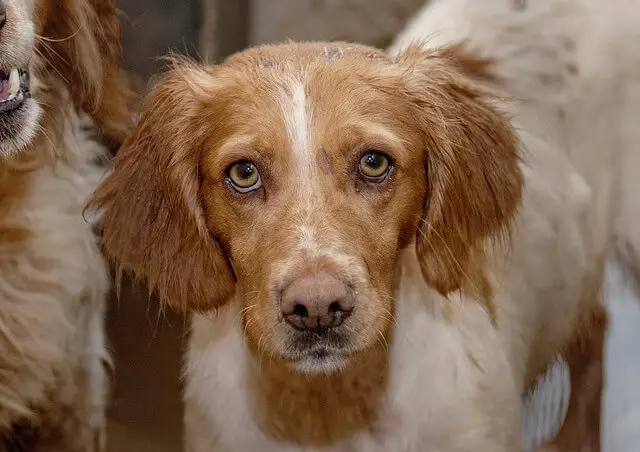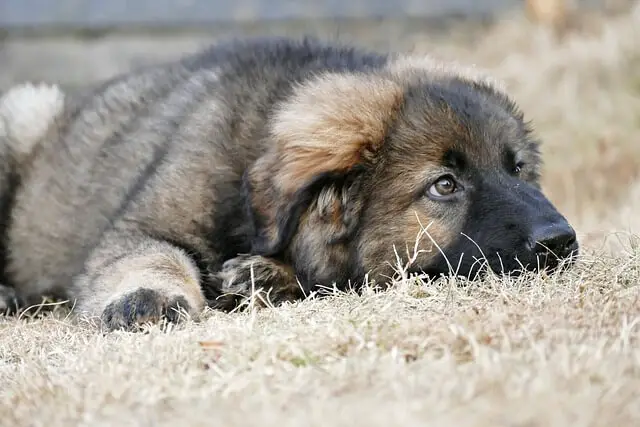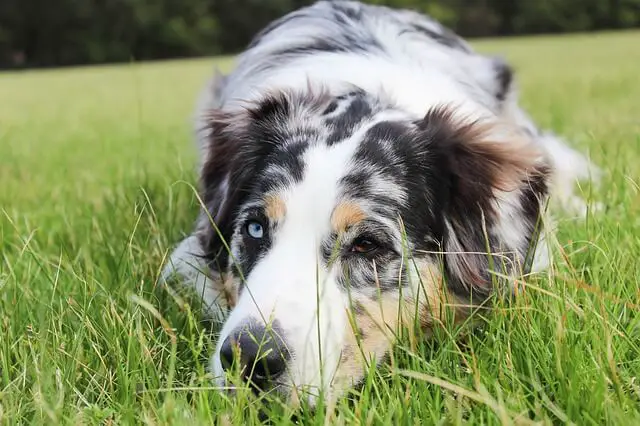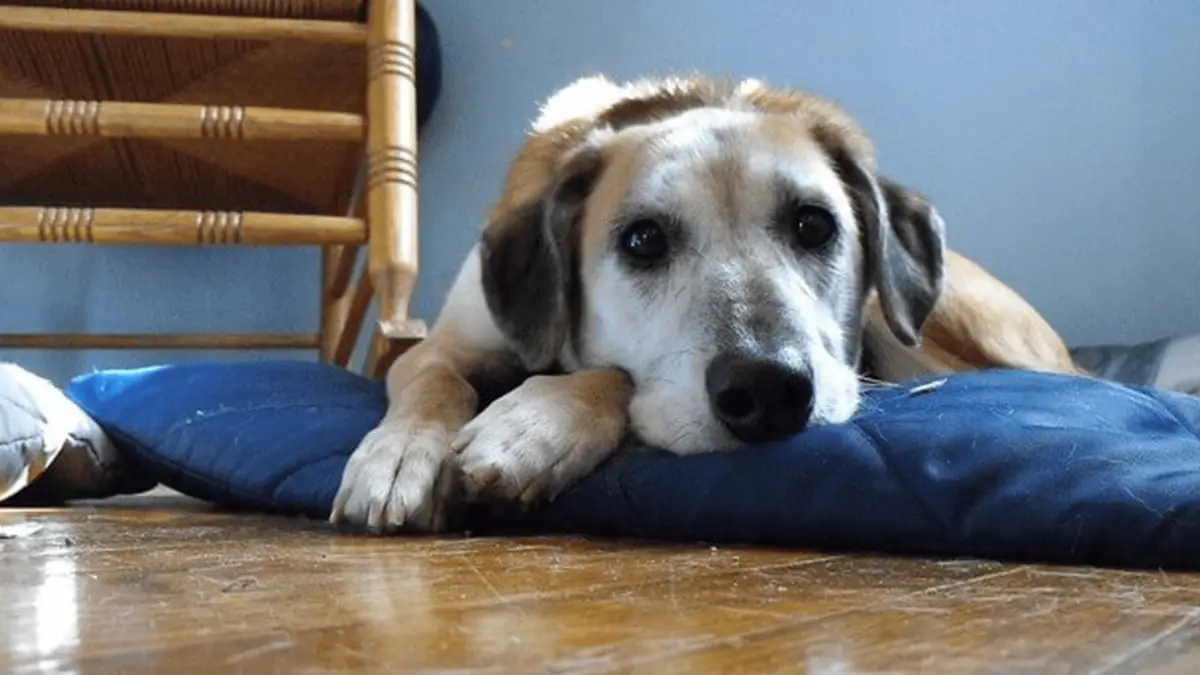Can Dogs Get Food Poisoning?
06.04.2022.
When it comes to food poisoning in humans, we see it as the ingestion of food contaminated with bacteria, viruses, parasites, or the toxins from these agents, which in turn cause us to get sick.
Signs of food poisoning include nausea and vomiting, diarrhea, and fever—all occurring within a few hours after eating the offending food.
The "joy" of some of these symptoms when your dog eats something they shouldn't have is probably familiar to anyone who has owned a dog in the past. In other words, if our dogs are showing the same signs, then it must be food poisoning, right?
RELATED: Healthiest Human Food Dogs Can Eat
Is it possible for dogs to become ill from food poisoning?
Yes... and no. That's the short and sweet answer to this seemingly simple question.
In dogs, the issue of food poisoning is a little more complicated. When food poisoning is suspected, it is more often than not caused by something that wasn't prepared properly or was served at the wrong time.

Veterinary professionals call this condition "garbage gut" because dogs are so inclined to eat things they shouldn't.
Actual food poisonings can occur in dogs from several sources, however.
What causes it?
We must be aware of the resources available to our four-legged family members both inside the house and when they are out and about. Food poisoning in canines can be caused by several things, including:
Garbage
Garbage may be a delicacy for our dogs, but it should be kept out of the reach of our four-legged friends. Dogs can get food poisoning by eating rotten or moldy food.
As a result, you must keep pets out of your kitchen compost bin and your outdoor compost. Another potentially dangerous thing garbage can contain is bacteria. If your dog eats them, it can lead to infections and poisoning.
RELATED: Best Dog Food for Sensitive Stomach
Animal carcass
Make sure your dog can't get their paws on any dead or decaying objects you find in the woods or by the roadside. These items may contain dangerous bacteria or parasites, which can cause gastrointestinal distress and life-threatening illnesses if your dog manages to chomp on them.

Feces
Any type of feces (which many dogs seem to find so irresistible) can upset a dog's stomach.
Recalled foods
Recalled dog foods and treats can also make your pup sick, so keep an eye out for those. Recalled pet food can be found on the FDA's website, or subscribe to our notifications and make sure you get notified whenever a recall happens.
Undercooked food
Raw diets are popular these days, but raw animal parts can cause serious health issues. Aside from the risk of food poisoning, bones have the potential to form foreign bodies that would necessitate surgical removal.
RELATED: Will Spicy Food Hurt Your Dog?
Food poisoning symptoms
Vomiting, diarrhea, appetite loss, energy loss, and severe dehydration are some of the typical symptoms of canine food poisoning. Some animals may exhibit neurological symptoms such as tremors, seizures, and even death if neurologically compromised.

Your dog's symptoms will depend on what they ate, how much they ate, and how susceptible they are. Vomiting and diarrhea are usually the first problems dogs with food poisoning will experience.
What if my dog has food poisoning?
As a general rule, if your dog begins vomiting, you should try fasting them for 24 hours. Offer them water, but make sure they don't consume food. If vomiting continues for more than a few days, a vet should examine them. Veterinarians should be consulted if the dog does not vomit during the 24-hour fast but then vomits again after reintroducing food.
Make an appointment at an emergency clinic or with your veterinarian immediately if your dog shows any symptoms of a neurologic disorder.
RELATED: Can Dogs Eat Bacon? What Would Your Vet Say?
The best course of action is to take your pet to the vet for an examination. Getting treatment started makes it easier, more effective, and most likely, less expensive. Plus, it'll spare your dog a lot of discomfort due to an upset stomach.

Toxicity or food poisoning
Food poisoning symptoms in dogs can seem pretty similar to food toxicity, as is the case with human food poisoning. A wide variety of human foods can cause gastrointestinal distress in dogs and not cause food poisoning. It is always a good idea to discuss your dog's diet with your vet. Some human foods are extremely dangerous. The following items can be toxic to dogs:
- Coffee
- Nuts
- Garlic
- Dough
- Alcohol
- Chocolate
- Macadamia nuts
- Onion
- Too much salt
- Chives
- Xylitol
- Cat food
While some of these are safe in small doses, others can be lethal. Ensure that all human foods, including these, are kept out of reach of dogs.
Table scraps
Even a tiny bite of our food can suffice to make a dog sick. At the same time, another dog can eat the same amount of the same food and have no reactions. Avoid foods found around trash bins and on the floor on your walks. Again, some might be safe for dogs, and others can cause severe problems.
RELATED: Can Dogs Eat Brussels Sprouts
Table scraps can also be shared with dogs, but generally speaking, it is not advised to give them to your dog.
The pancreas can become inflamed in dogs overly sensitive to fat. Even a tiny amount of cheese, a hotdog, and chicken skin can cause a reaction. Dogs that eat too many fatty foods can develop pancreatitis. Symptoms of this condition will include severe abdominal pain, nausea, vomiting, and diarrhea. Plus, pancreatitis is very painful.
However, despite the similar symptoms, pancreatitis can be much more serious and even fatal.
You're better off ignoring your dog's pleading eyes and paws in favor of a nutritious bowl of kibble. Always consult with your veterinarian before introducing new foods to your pup's diet.
Preventing "Garbage Gut"
Don't leave food out in areas your dog might reach. Let your guests know that your dog isn't allowed to be fed human foods, no matter how cute their puppy eyes are.
Keep an eye on your yard to ensure there aren't any dangerous snacks. Control your dog if you're going somewhere where you won't have time to scout the area for dangers. By limiting your dog's access to certain items, you'll be able to avoid problems down the road.
When taking a walk with your dog, be sure to keep them on a leash, so they don't stumble upon any forbidden treats. Dogs can be taught to "drop it" if they get their paws on something toxic.
RELATED: Can Dogs Eat Lamb Bones
Preventing food poisoning in your dog can be made easier if you are aware of harmful foods your dog will be close to.
World Dog Finder team







Share